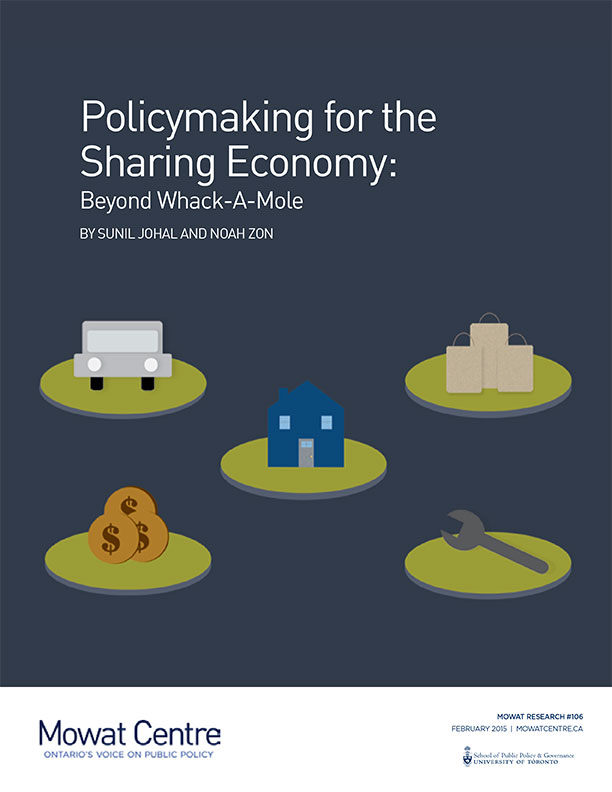February 16, 2015
Beyond Whack-A-Mole
This report looks at the public policy questions raised by the sharing economy and makes recommendations on how governments should approach these new marketplaces.
Across the economy, informal and lightly-regulated marketplaces are emerging that directly connect individuals and small businesses. New technology platforms such as Uber, Airbnb and TaskRabbit are accelerating the advent of the “sharing economy” with rapid speed and massive scale. This report looks at the public policy questions raised by the sharing economy and makes recommendations on how governments should approach these new marketplaces.
This report explores why the sharing economy is such a puzzle for governments. It assesses what’s new and what’s not about these marketplaces, the interests of the key players, and what characteristics of the sharing economy and government itself make this such a challenging and contentious discussion. The report concludes by proposing specific recommendations for policymakers grappling with the challenges and opportunities posed by the sharing economy, including establishing a strategic operating framework, re-aligning political and cultural incentives, modernizing government structures and adopting smarter regulatory responses.
View PDFAuthors
Sunil Johal
Noah Zon
Release Date
February 17, 2015
ISBN
978-1-927350-91-1
Mowat Research
No. 106








